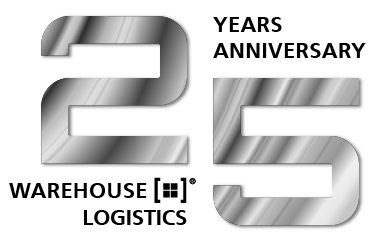News
Every Car Counts: How SAP and BMW Group Are Standardizing Production Logistics
31.07.2025
Every 57 seconds, a new car rolls off the assembly line at the BMW Group’s plant in Regensburg, Germany. But the factory does more than just build highly desirable automobiles; it is also pioneering the company’s cloud transformation to SAP S/4HANA.
UsingRISE with SAP, BMW Group converted the factory’s operations to modern cloud software, which also enables greater integration ofAI. The successful go-live among this complex shift operation was the result of an extraordinary team, a strategic partnership lasting more than 30 years, and seven years of co-innovation between BMW and SAP.
Creating a new standard as partners
Following the initial rollout of the new solution at BMW Group’s MINI plant in Oxford, England, the Regensburg plant is the first full-scale BMW Group facility to transition to SAP S/4HANA.
The rollout of the new cloud solution for the parts process chain (abbreviated as PKT in German) affected the entire logistical process chain for the digital control of parts supply in vehicle production — from ordering required components from suppliers, receiving, and warehousing to delivering them to the production line.
In addition to purely logistical processes, the solution also covers the plant’s quality and maintenance processes. For the first time, the new PKT template for SAP S/4HANA enabled unified management of parts supply across all production technologies required to build a vehicle.
The project’s success is rooted in a team that worked across corporate boundaries toward a shared goal. Customer Services & Delivery and Product & Engineering teams from SAP partnered with BMW to create a blueprint for holistic digital transformation in production logistics — from the press, body, and paint shops to final assembly.
Awareness of the importance of this transformation project was palpable among every SAP employee involved. »We made one thing clear to everyone on the team: every single car counts,« says Carola Schoenfelder, chief project expert, Strategic Customer Innovations at SAP, and program lead for SAP at BMW. »It wasn’t only about IT; it was about the factory, the people, and the result.«
Transformation as a staircase
Around one-third of employees at the BMW plant in Regensburg work directly with SAP S/4HANA components, includingSAP Transportation Managementand SAP Extended Warehouse Management. Involving those affected in the change process was critical to success. Another factor in the project’s success was learning from experience. The smaller MINI factory in Oxford had already completed its go-live, which helped guide the project team as it worked on the bigger Regensburg project.
Instead of designing the transformation as a metaphorical »rock face« that had to be climbed without any safety equipment, the team viewed it as a »staircase«: an incremental, guided transition. In addition, satellite support points were set up within the factory to offer support at any time.
Identifying optimization potential
Six months after go-live, it is clear that the transition to SAP S/4HANA Cloud Private Edition is more than just a technical upgrade; it’s noticeably changing daily operations. In particular, the new SAP Extended Warehouse Management application is proving to be a key technology that supplies important data and identifies potential for optimization.
Thanks to the new data foundation, the potential for optimization can be more precisely identified, for example, by the use of tugger trains and reduction of internal transport kilometers.
Standardization brings not only efficiency but also flexibility. Employees can switch between tasks more easily, and even between factories, because less specialized knowledge is needed. The processes are more streamlined and more transparent.
»The global digitalization of our production logistics significantly increases transparency and standardization, allowing us to respond more quickly to changes in demand or supply shortages,« explains Michael Nikolaides, head of Production Network and Logistics at the BMW Group.
Ready for an AI-driven future
Strategically, the new IT infrastructure has brought significant changes. The cloud provides speed and flexibility, without users having to worry about the technology in the background. Moreover, the introduction of standardized cloud solutions is a crucial step toward fully harnessing the potential of AI in the future. To benefit sustainably from AI, standardized software solutions that can be quickly enhanced with new capabilities are needed.
»With the next stage of digitalization in production logistics — enabled by consistent, unified data structures and standard process templates — we have significantly advanced the AI enablement of the BMW Group,« explains Alexander Buresch, CIO and senior vice president of BMW Group IT.
Over a seven-year period of co-innovation, BMW shared its automotive-specific requirements while SAP mapped large sections of these requirements in SAP S/4HANA and in the industry solution SAP S/4HANA for manufacturing logistics. »As part of our partnership with SAP, we have transferred key corporate processes to a service-oriented, cloud-based platform, achieving a new level of efficiency, quality, and automation,« Buresch says.
Those who use a shared standard can also find solutions collectively, share them, and co-develop solution designs. If other automakers configure on the same standard in the future, BMW will also benefit from new SAP releases.
The strategic collaboration to develop the PKT template began in 2018 as a project driven by deep expertise and strong commitment. The go-live in Regensburg is a key indicator that SAP S/4HANA Private Cloud can meet the complex demands of a high-volume vehicle plant. Together with BMW, the SAP consulting team demonstrated that with meticulous preparation, a lossless go-live in a complex shift operation is possible. The rollout process works and can be adapted and expanded plant by plant.
Hendrik Haas, senior vice president, general manager, and head of Customer Services & Delivery Middle and Eastern Europe at SAP, adds: »The collaboration with our lighthouse customer BMW is making waves in the market and demonstrates how digital transformation in production logistics can be successfully implemented. BMW’s Regensburg factory was an important step, with extraordinary commitment from both sides of the partnership. We will continue the RISE with SAP transformation at the main factory in Munich this summer, together with BMW.«
